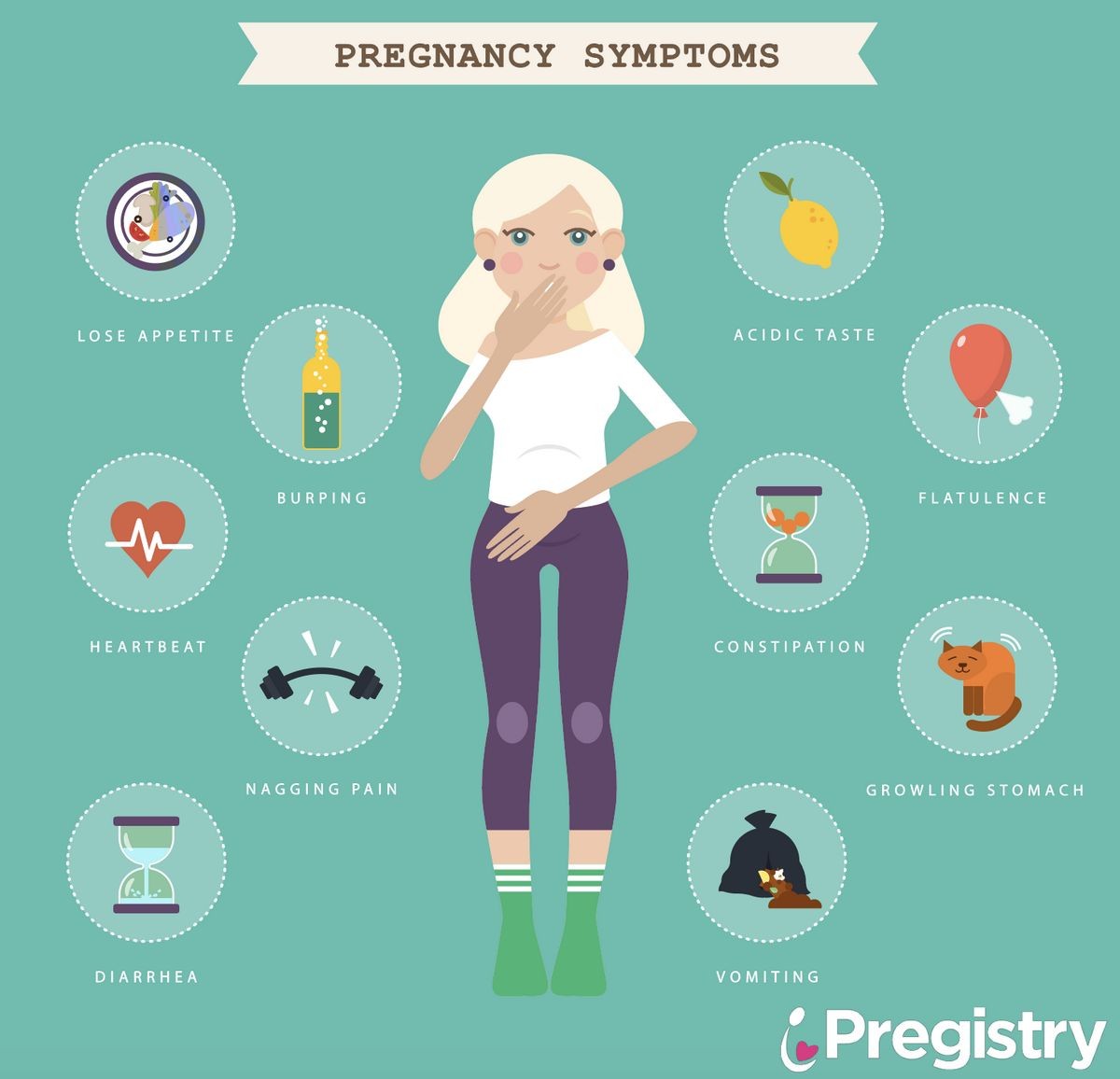
18 Causes of Pregnancy Discomforts
Hormonal changes cause pregnancy discomforts like morning sickness, constipation, frequent urination, skin color changes, yeast infections, mood swings, insomnia, headaches, migraines, and nasal congestion.
- Breast swelling and pain: Result of increasing breast size and milk ducts expanding.
- Fatigue: Result of the growing baby’s energy requirements and anemia.
- Hemorrhoids: Result of pressure on the rectum and increased blood volume.
- In addition to hormones, constipation is caused by the growing baby and increased iron intake.
- The growing baby and expanding uterus put pressure on the stomach and intestines, causing reflux.
- Varicose veins: Caused by increased pressure on the legs and pelvic veins.
- Swelling/bloating/fluid retention: Caused by pressure on blood vessels in the lower body.
- Frequent urination: Caused by pressure on the bladder.
- Abdominal pain: May be due to stretching ligaments, gas, constipation, or Braxton Hicks contractions.
- Stretch marks: Result of rapid weight gain during pregnancy.
- In addition to hormones, yeast infections may be due to increased vaginal discharge.
- Mood swings: Caused by hormones, stress, and fatigue.
- Backache: Result of weight gain and change in center of gravity.
- Aside from hormones, insomnia is caused by the urge to urinate, nausea, heartburn, and finding a comfortable sleep position.
- Dizziness: May be caused by low blood sugar, pressure changes, low iron, dehydration, or standing up too quickly.
- Headaches and migraines: Caused by hormones, lack of sleep, low blood sugar, pressure changes, and stress.
- Increased blood flow: May cause gums to bleed easily.
- Pica: Rare craving for non-food substances due to nutritional deficiencies.
Symptoms of Pregnancy Discomforts
Uncomfortable symptoms of pregnancy are common and include:
- Morning sickness (nausea and vomiting): Nausea affects about 80% of women, and about 50% experience both nausea and vomiting. Severe vomiting is called hyperemesis gravidarum and can last throughout pregnancy.
- Breast swelling and pain: Milk ducts expand and breasts fill, causing sharp pains. Hormonal changes may cause tenderness.
- Fatigue: More than half of women experience fatigue, typically during the first and third trimesters.
- Hemorrhoids: Pressure on the rectum and perineum can lead to hemorrhoids, especially in the third trimester.
- Constipation: Hormones, pressure on the intestines, and increased iron intake can cause constipation.
- Heartburn/indigestion/reflux: The expanding uterus puts pressure on the stomach and intestines, causing contents to reflux.
- Varicose veins: Increased pressure on the legs and pelvic veins may cause varicose veins.
- Swelling, bloating, and fluid retention: Common during pregnancy, but severe swelling may be a sign of preeclampsia.
- Frequent urination: Hormonal changes and pressure from the growing baby cause frequent urination.
- Abdominal pain: Upper stomach or abdominal pain is common during the third trimester.
- Stretch marks: Rapid weight gain during pregnancy can cause stretch marks on the skin.
- Skin color changes (mask of pregnancy or chloasma): Hormonal changes may result in brown patches on the face and other skin changes.
- Yeast infections: Hormonal changes and increased vaginal discharge make women more susceptible to yeast infections.
- Mood swings: Changes in mood and feelings of stress are common during the first trimester and near the end of pregnancy.
- Backache: Weight gain and change in center of gravity cause back strain.
- Insomnia: Hormonal changes and other pregnancy-related stressors can interfere with sleep.
- Dizziness: Can be caused by low blood sugar, pressure changes, low iron, dehydration, or standing up too quickly.
- Headaches and migraines: Can be caused by hormones, constipation, lack of sleep, low blood sugar, pressure changes, and stress.
- Bleeding gums and tooth pain: Increased blood flow can cause gums to bleed easily, and toothache and sensitivity are common.
- Congested or bloody nose: Increased blood flow can result in congestion, stuffy nose, or nosebleeds.
- Flu-like body aches: Muscular changes, vomiting, and dehydration may cause body aches.
- Pica: Rare craving to eat non-food substances due to nutritional deficiencies.


